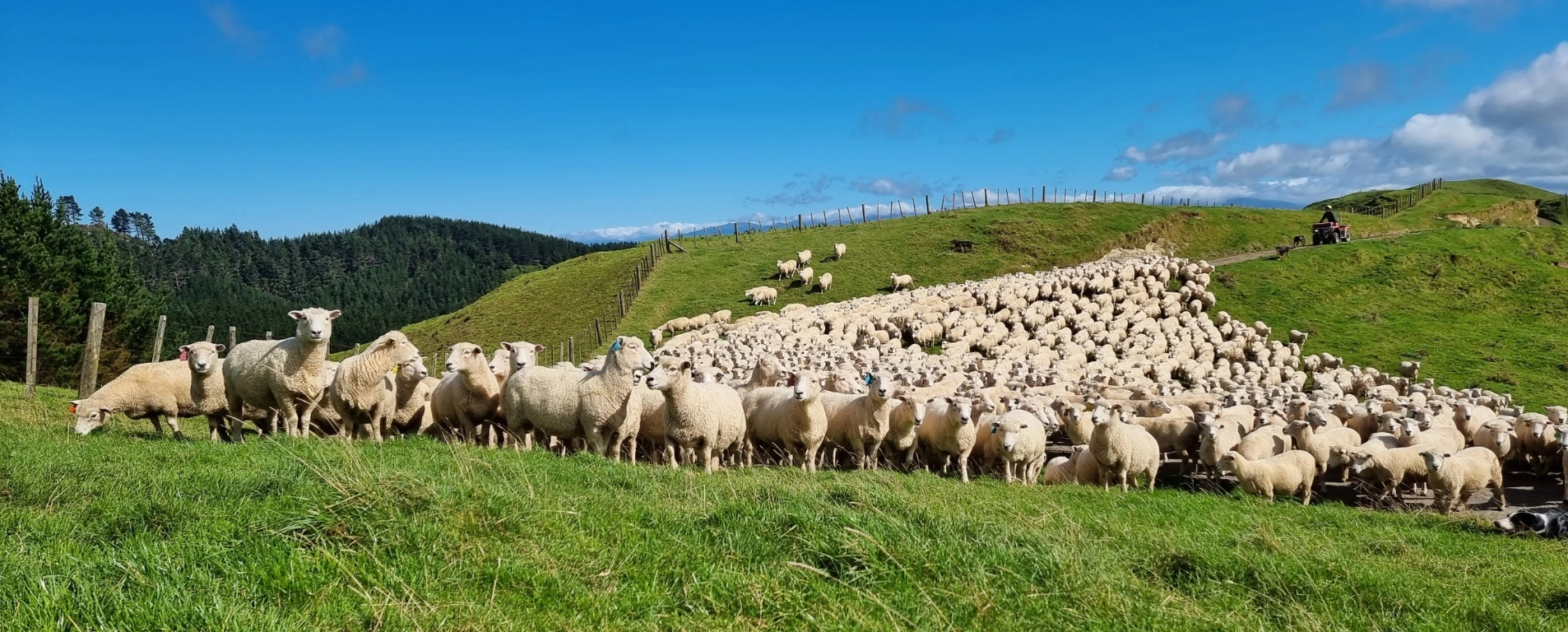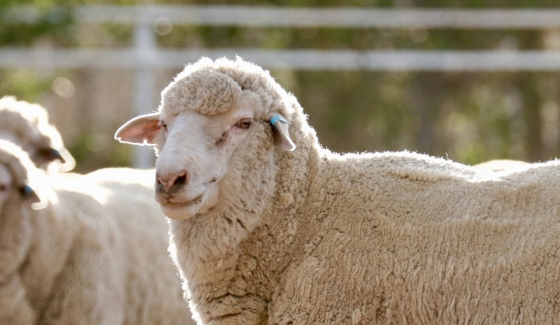
To celebrate the International Day of Rural Women on October 15, I sat down with three rambunctious farming sisters, to talk about their experiences on the family farm and how this important part of their identity has shaped their future chosen careers.
International Rural Women’s Day recognises the roles and contributions of women to global food production, resource management, climatic awareness, food security and nutrition. It creates an avenue for women to connect to and empower other women in agriculture and instigates a conversation about issues around equality in the agricultural industry.
The concepts of connection, empowerment and equality have always been evident in the Kaveney family and are understandably major contributors to each sister’s ongoing involvement on the family farm and their further endeavours within the agricultural industry. “I love working with Amber and Grace” says Brooke. “They are exceptionally hard workers and won’t quit until a job is done and we can still laugh all day, even when things just keep going wrong! Empowerment, or self-belief, are concepts that were bolstered by their parents, Paul andKaren Kaveney and brother, Hamish. “Mum and Dad have always encouraged us with everything and given us the opportunity to be involved on the farm. Hamish is also so encouraging, supportive and very willing to teach me new things” says Grace.
In fact, it wasn’t until 1994 that Australian women could legally claim they were farmers, and as recently as 2015, Australia had notably fallen behind other developed countries such as Asia, in its attempts to recognise the contributions of farming women. By 2019 women represented 41%of the agricultural workforce in Australia but continually held less power and responsibility than their male counterparts.
Today, as the Australian agriculture industry experiences one of the largest booms on record, attitudes and participation rates are changing, as more women, like the Kaveney sisters, enter the industry armed with the knowledge, skills, and confidence to demonstrate how agriculture can benefit from their involvement. Women are now more widely recognised for their contribution to the agricultural industry, such as Western Australia social innovator, Cara Peek who was announced as the 2020 Agri Futures Rural Women's Award National Winner this month. Peek is a proud Yawuru/Bunuba woman and was named the National Winner for her work in driving employment opportunities for First Nations people in remote Australia.
The next generation of farming women
Brooke, Amber and Grace Kaveney were born and raised just outside of the quaint country village of Thuddungra, located northwest of Young in New South Wales. The sisters and their parents and brother run a mixed farming enterprise at ‘Coolonga’ practicing cereal crop and temperate pasture cultivation, and Merino ewe and prime lamb production. From day one, the three sisters, who are all now enterprising young adults, engaged eagerly in farming life, gaining important sheep husbandry and cultivation skills, and giving their parents and younger brother a run for their money.
“It is our job to always purchase the rams at auction” says Brooke. “We base our decisions on breeding values, confirmation and body type and we determine which rams we will bid on and how much we are willing to pay”. She chuckles as she recalls, “Dad just comes along for the sausage sandwiches now. We regularly come home from Wagga to help with lamb marking, crutching, baling or harvesting”, says Brooke and I am actually one of few female members of the Thuddungra Rural Fire Brigade to hold a heavy vehicle truck licence!”
The sisters are also avid horse riders, participating in eventing competitions, involving dressage, cross country and show jumping, and securing many awards and prizes along the way. Nevertheless, their dedication and commitment to their family farm runs deep, and they take every opportunity to return to the farm when they can.
Passion, adaptability, and enthusiasm are all qualities shared by these women who have now paved their unique paths away from the farm and into study, research, and the workforce.
Since completing her PhD in soil biochemistry at Charles Sturt University eldest sister, Brooke, has been working on additional scientific research and is joined by her youngest sister,Grace, who is studying a Bachelor of Agricultural Science, after spending two gap years working for international world class polo players in England, NewZealand, and Australia.
“I was responsible for the daily management and care of the 12 to 30 professional polo ponies”, she said. “But it enabled me to travel and see the world”.
Middle sibling Amber studied a Bachelor of Youth Work at Victoria University in Melbourne and is currently employed as a disability support worker in Wagga. “I enjoy working with individuals with disabilities, developing their skills and capabilities to achieve independence and participate in school, work and the community”, Amber said.
From sister to soil scientist
Brooke began a Bachelor of Agricultural Science at CSU in 2012, after multiple gap years and much deliberation over what path she wanted to take. “After high school, I was lost as to what university degree I would pursue until I realised my passion for agriculture was not waning”.
Driven by this passion and the lure of scientific advancements in agriculture, Brooke pursued honours.
“I was fortunate to spend a year in Vietnam studying rice-shrimp farming systems for my honours year”.

It was through this opportunity that Brooke was introduced to theAustralian Centre for International Agricultural Research (ACIAR). After graduating with Class 1 Honours in 2015, Brooke began a PhD, focusing on improving the soil nitrogen use efficiency for Australian producers and farmers. She also started lecturing at CSU and conducted enrichment presentations at local high schools, with the aim to increase her audiences’ interest in studying agricultural science at university, especially young women.
“I was the youngest lecturer in the School of Agriculture and Wine Science and assisted teaching a range of subjects to first year students including soil science, botany and biology”, says Brooke. “I find these experiences highly rewarding and personally relevant”.
In 2018 Brooke ceased teaching and dedicated herself to full time research for her PhD and has since published papers and presented at conferences, field trips and meetings. She travelled to the Tokyo University of Agriculture and Technology and the Yamaguchi University in Japan, to present her research and discuss future collaboration efforts. She also completed a ‘Rice Research to Production’ course in the Philippines where she made several contacts with leading agricultural scientists from all over the globe aiming to extinguish world hunger through improving rice production.
“I also think that a greater recognition for scientific and technological advancements in agriculture really opens so many doors for women to be involved in the industry”, she noted.
After completing her PhD in 2019, Brooke was involved in a project with leading soil scientists, plant physiologists and plant breeders from universities across Australia and Vietnam. She helped train Vietnamese agronomists to detect soil salinity and track its spread across the Mekong Delta. Brooke’s international experiences have cemented her love of agriculture and her desire to help those less fortunate using practical solutions.
“I am now working on an international ACIAR project helping fund alternative solutions to rice production in the saline soils of the Mekong Delta, in Vietnam”, says Brooke.
She hopes that future projects like this, will use the resources and skills developed from her work and the work of other Australian scientists, to expand agriculture in developing countries. A seemingly contemporary goal, which she recognises begins by getting female farmers involved.
A bright future for the Kaveney sisters

“I think the future looks promising.Farming is less about brute force and more about good planning, sound decision making, innovation and creativity, especially during challenging times,” saidBrooke.
“I will continue working on my scientific research whilst remaining actively involved in the farm over summer and that might be followed by a beach holiday”, she said with a wink. “It’s an industryI have grown up in and means so much to me, so many of the people I know, love and care about are involved in agriculture and that makes me want to be involved and contribute to the industry in the same way”.
Looking ahead, Amber remains content with her current position in disability support but predicts she will always return home for harvest. “I have been heavily involved with GrainCorp for a while now and managed the Maimuru receival site last year”.
As for Grace, she has decided to pursue University honours in 2022, and will be investigating the risk of lime induced copper deficiency in livestock. “I am very excited and hopefully, I can continue working in the research department in the future, either for a research company such as Kaylx or possibly the DPI”, she said.
As for what excites them most about their futures and what they see will be one of the biggest challenges they are likely to face as women in agriculture? Brooke says, “knowing that I’m making a difference, I particularly like working on research projects that will positively affect the farming community and help promote management practices and techniques that will benefit the industry as a whole”.“I think a climate change and misinformation will be the biggest challenges”,she added. “From a scientific perspective, it is hard to hear people of authority voicing opinions on issues they haven’t done their research on or are purposely being misleading. Misinformation can have very negative impacts on good causes”.
Conclusion
With positive attitudes and strong work ethics, the future in agriculture that these sisters have so keenly worked for, will no doubt bring them endless opportunities as well as challenges, but ones they are ready to tackle head on.
“I think women are versatile, strong, have a good attention to detail and can be so adaptable”, says Brooke. “Agriculture requires every one of these elements and being a woman in the industry allows to you contribute with your unique set of skills. I am lucky to have been given every opportunity on the farm to develop these skills in an agricultural setting. My family is one of the best things about agriculture and I wouldn’t change that for the world. I love working with them and it brings me so much joy and pride”.
“Both men and women have different skills, strengths, and weaknesses”, added Amber. “Having women directly involved in agriculture means you are engaging with essentially half of the people that have connections with agriculture. That’s a lot of people who can bring a lotto the table”.
I finished my interview on the International Day of Rural Women by asking the Kaveney sisters for one piece of advice, something that had stuck with them throughout their lives on the land,“work hard, be good at your job and opportunities will always arise - and don’t forget to look forwards when reversing”, was the hilarious reply.

"...Women are versatile, strong, have a good attention to detail and can be so adaptable...agriculture requires every one of these elements..."








